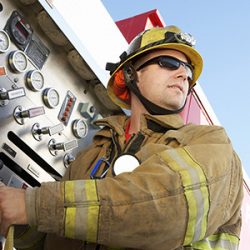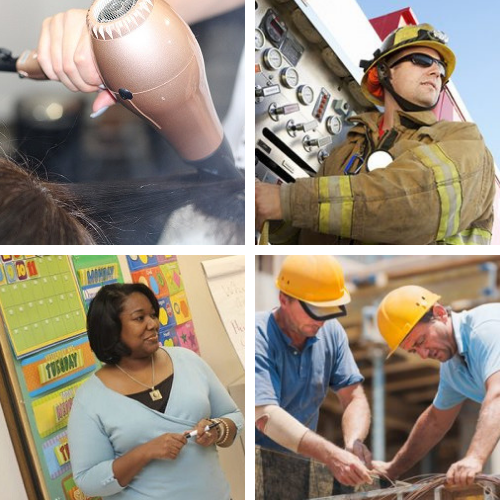You’ve seen the TV commercials for lawyers soliciting those with Mesothelioma and probably thought that doesn’t pertain to me. But did you know that every year approximately 3000 new cases of mesothelioma are diagnosed in the United states.
Mesothelioma stays dormant for 20 to 50 years, also called the “Latency Period” and you may not develop symptoms until you are in your 60s or 70s.
Are you at risk for Mesothelioma? Read on.
Exposure to Asbestos is the cause of Mesothelioma
Asbestos is a mineral fiber that occurs in rock and soil. Because of its fiber strength and heat resistance, asbestos has been used in a variety of building construction materials for insulation and as a fire retardant.
Asbestos has also been used in a wide range of manufactured goods, mostly in building materials (roofing shingles, ceiling and floor tiles, paper products, and asbestos cement products), friction products (automobile clutch, brake, and transmission parts), heat-resistant fabrics, packaging, gaskets, and coatings. (source: https://www.epa.gov/asbestos/learn-about-asbestos)
Asbestos is perhaps best known for its role in causing mesothelioma, a rare and deadly cancer that can develop in linings of the lungs, abdomen, or heart. Industries knew about the dangers of asbestos in the 70s but continued to use it until the government stepped in to regulate its use and eventually ban it. The use of asbestos was phased out in 1989 and banned entirely in December 2003.
If you have worked in any of the occupations listed below, chances are you have been exposed.
Secondary Exposure to Mesothelioma
Many people don’t know this but If you lived with someone who worked in the trades/occupations listed below, you are also at risk. It’s called Secondary Exposure.
These at-risk workers carried home the asbestos particles on their clothing, hair and shoes. Once they began to “clean up” they sent the particles airborne in their homes.
Industries with Risk of exposure to Mesothelioma
There are three levels of risk exposure for various trades and industries: High Risk, Medium Risk and Low Risk. Some of these occupations you may have already heard about, but some may surprise you. See the lists below grouped by exposure.

Occupations with High Risk of exposure to Mesothelioma
- Asbestos mining
- Asbestos plant workers
- Boiler workers
- Construction workers
- Firefighters
- Industrial workers
- Insulators
- Factory workers
- Power plant workers
- Shipyard workers
- Steel mill workers
- Textile mill workers
- Veterans – All Branches of Service
Construction jobs are a major source of asbestos exposure in the U.S. About 25 percent of people who die of asbestosis worked in the construction industry, according to the National Institute for Occupational Safety and Health.

Firefighters is a surprising occupation that is at high risk. But it makes sense, they often fight fires in old buildings that used asbestos building materials. A burning building can send asbestos particles soaring through the air. Asbestos is also used to make the protective firefighting clothing, helmets and boots.
Occupations with a moderate risk of asbestos exposure include:
- Auto mechanics
- Blacksmiths
- Carpenters
- Cement plant workers
- Chemical plant workers
- Engineers
- HVAC mechanics
- Electricians
- Linotype technicians
- Metal workers
- Oil refinery workers
- Paper mill workers
- Plumbers
- Railroad workers

Occupations at Low Risk of Asbestos Exposure
Low-risk jobs infrequently place workers at risk of asbestos exposure. The concentration of toxic fibers in the workplace may be low or moderate. Even low-level asbestos concentrations can cause mesothelioma if exposure occurs regularly for years.
- Aircraft mechanics
- Appliance installers
- Hairdressers
- Teachers
- DIY Home Renovators & Handymen
I was really surprised to find Hairdressers and Teachers on the list.
Hairdressers and people who worked in salons used hooded dryers and blow dryers which exposed them to asbestos. Back in the seventies, hooded dryers and blow dryers used asbestos as heat insulation. As the styling appliances aged, the asbestos became “friable” or loose, crumbly and eventually airborne. Salons continued the use of these appliances as late as the 1980s. And unfortunately, there may be salons still using asbestos laden products.
Teachers (as well as students) are at risk because many of them work in (or attend) schools that were constructed using asbestos building materials. As the schools continue to age, the building materials become loose with the potential to become airborne.
If you’re At Risk, What Should You Do?
If you are at risk, it’s important to talk to your Doctor before you experience symptoms. Once you begin experiencing symptoms, the disease gets aggressive. View the symptom chart. https://www.asbestos.com/mesothelioma/symptoms/
If you or someone you know suspects they have Mesothelioma or have been exposed to asbestos, there are a lot of resources, funding and help available.
| Contact The Mesothelioma Center for help navigating through all the resources and information |
Some of the assistance available includes:
Mesothelioma Trust Funds
$32 billion dedicated to people affected by asbestos and mesothelioma.
Travel, Housing & Treatment Grants
Take advantage of grants and other funds available to cover your expenses.
Asbestos-related Lawsuits
Many mesothelioma settlements exceed $1 million. Contact The Mesothelioma Center for a list of attorneys.

